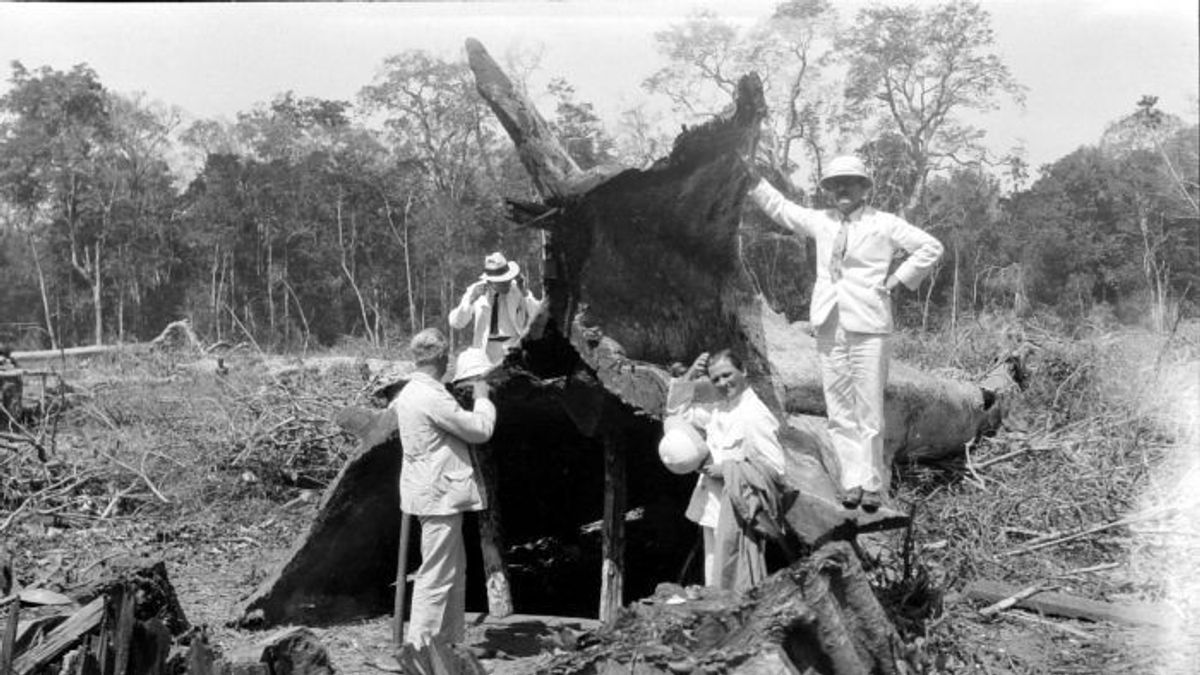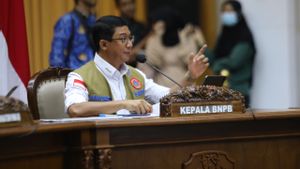JAKARTA – History today, 300 years ago, June 16, 1722, the Governor General of the VOC Hendrick Zwaardecroon (1718–1725) forbade the cutting of trees in Priangan. No kidding, he banned logging activities within 15 years.
Zwaardecroon reasoned that the development carried out by the Dutch trading airline VOC in the archipelago was too massive. Therefore, the population of trees, especially teak, is decreasing. As an option, the ban was imposed so that new trees would soon grow with high quality wood.
About building a city is never easy. The Dutch trading company, VOC, was once confused by it. The VOC's desire to build the city of Batavia did not run smoothly. The owner of the power must immediately meet the needs of building materials. Wood, for one.
The VOC also strated. Forest logging is promoted. This activity continued for a long time. No pause. All because the VOC only thought about profit, while the ecological aspect was ignored. After that, wood became a big trading commodity in Batavia.

Logging is also getting more and more crowded. The emergence of various industries and the clearing of agricultural land are other causes. Overexploitation also invites problems. Floods are the most important. This problem often greeted the residents of Batavia. Even floods often trouble every governor-general in office.
Even the owner of the power turned his head to look for a solution. However, there are no powerful ideas to stem the environmental problem. Moreover, flood disasters are often accompanied by climate problems in Batavia so it is not healthy. The reason is clear. The presence of factories that began to thrive.
“The felling of trees for sugar companies and even more so for planting rice that requires irrigation, has a significant impact on rivers. Every year a group of 'mump Javanese people' are brought in from Cirebon to dredge the ditch and canal, but they are unable to withstand the silting; the coastline is rapidly shifting,” said historian Hendrik E. Niemeijer in the book Batavia of the XVII Century Colonial Society (2012).
The power of the VOC was expanding day by day. Especially when the VOC conquered the Cirebon Sultanate in 1681. Those in power also took advantage of the expansion of the area by making the Priangan area (from Cirebon to Bandung) to exploit timber.

The policy was in fact not much different from what happened in Batavia. Logging often ends in disaster. Therefore, the VOC took a stand. The Governor General of the VOC, Hendrick Zwaardecroon then banned illegal logging or a forest moratorium on Bumi Priangan for 15 years. The rules were issued by the VOC on June 16, 1722.
"All logging in the Priangan area must be stopped for 15 years, at the joint request of the heads of the people in Priangan, not only to give rest to loggers who are tired and live in seclusion, but also so that young trees on the banks of the river are still alive. exists, it can grow into usable wood,” reads the regulation as written by Noer Fauzi Rachman in the book Agrarian Politics and Pakuan Pajajaran (2022).
The VOC's prohibition of logging in Priangan is part of history today, June 16, 1722 in the archipelago.
The English, Chinese, Japanese, Arabic, and French versions are automatically generated by the AI. So there may still be inaccuracies in translating, please always see Indonesian as our main language. (system supported by DigitalSiber.id)








